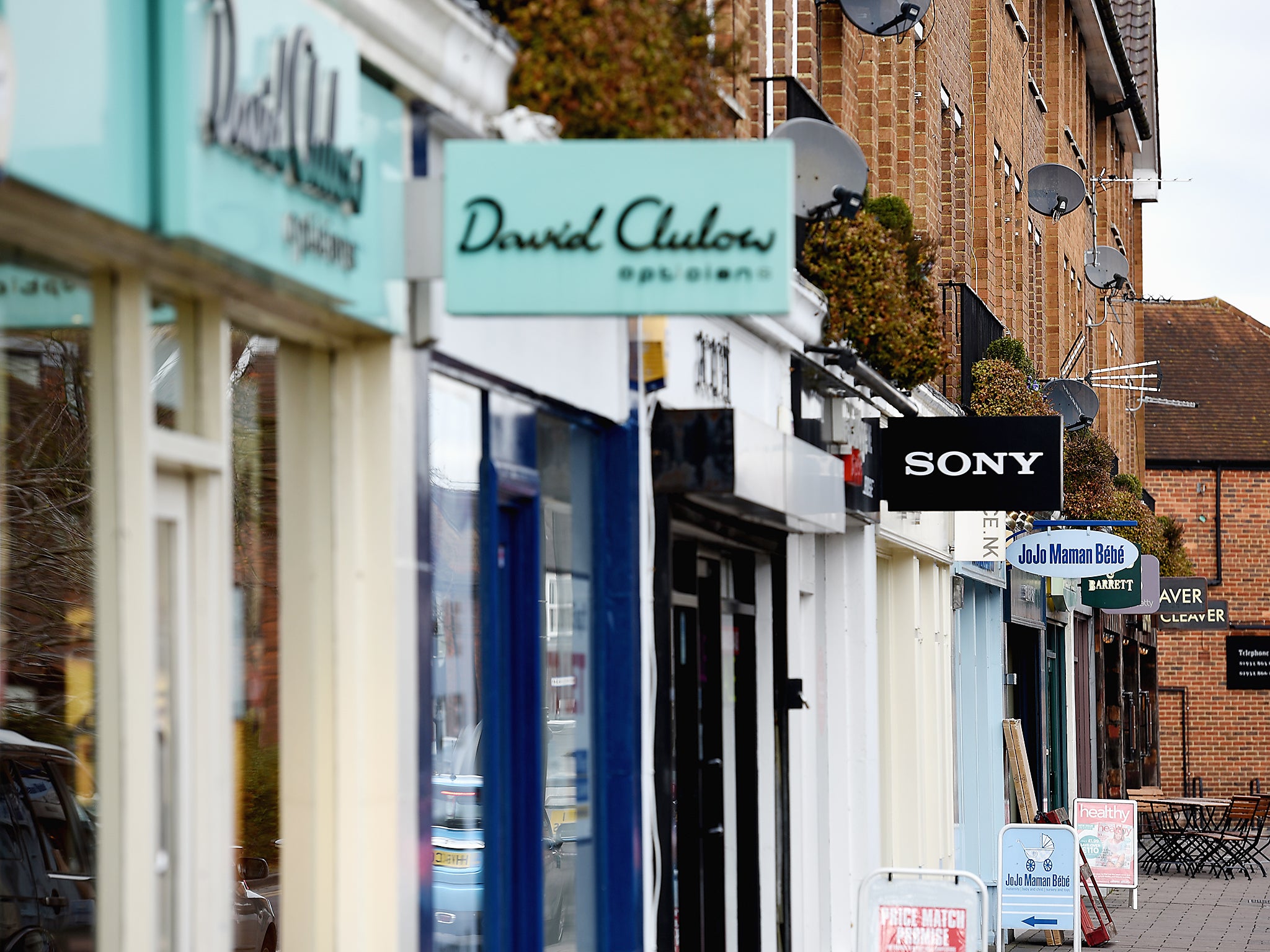What are business rates, why is the Government hiking them, and why are people so angry?
How does the system work? And are the complaints from retailers, MPs and newspapers really justified?

There is a major revolt against the imminent hike in business rates by the Government, with ministers being lobbied by retailers, MPs and newspapers to water down or scrap the increase.
Warnings have been issued about the damaging impact it will have on many firms.
The retail TV celebrity Mary Portas has predicted that a third of independent shops could be killed off by the move.
But what are business rates? How does the system work? And are the complaints justified?
What are business rates?
They are a tax charge on business properties, such as shops, offices, pubs, warehouses and factories; a kind of council tax for firms.
The size of the tax varies with the “rateable value” of the property. Essentially, the higher the rent the higher the annual business rate charge.
Business pay roughly half of the value of their annual rent in rates.
In 2016-17 business rates are estimated to raise £29bn in total – which is around 4.5 per cent of the entire UK tax take.
Some 1.8 million UK businesses are liable.
From April, those with a rateable value of less than £12,000 will be entirely exempt from the tax.
Who is complaining?
A host of business lobby groups – the CBI, the British Chambers of Commerce and the Institute of Directors among them – are up in arms over the new rates that will be imposed in April.
They claim hundreds of thousands of retailers, from shops, to cafes, to hotels, are going to face massive and unfair tax increases.
This cause has been amplified by the Daily Mail, the Evening Standard and The Daily Telegraph.
Do they have a decent case?
They certainly have a point about the handling of the increase.
This is the first revaluation of business rates by the Government in seven years. They are supposed to be done every five years.
Ministers put off the 2015 revaluation to avoid a political headache. But because of that delay the disruption will be greater.
Business rents have changed significantly in some areas in the past seven years, especially for retail space in London, meaning that many businesses in the capital do now face a significantly higher charge.
The Government points out that it has established a transitional relief scheme, to smooth out the biggest bill changes over five years.
But this is plainly inferior to much more regular revaluations.
They should really be done every year. This would give businesses much more certainty over their bills.
But isn’t this a massive stealth tax hike on businesses?
No. Overall the fiscal impact of the revaluation will be neutral.
The Treasury's Office for Budget Responsibility estimates that business rates will raise 1.5 per cent of GDP in 2016-17 and precisely the same proportion of national income in 2017-18.
The impact is largely a distributional one. Places where business rents have fallen will benefit, while places where rents have soared will lose out.
For instance, firms with offices in the East Midlands will pay more, but those with offices in the North West will pay less.
However, it is true that the UK’s business taxes are high compared to other countries.
Among OECD countries the average share of GDP raised by taxes on non-domestic property is around 0.5 per cent of GDP, just a third of the UK’s share.
Don’t business rates unfairly advantage internet retailers?
This complaint doesn’t really stack up.
Given business rates are a tax on business property it’s obviously the case that firms that have less business property – like some internet retailers – will pay less.
And remember that large internet retailers such as Amazon do have property – think of those giant “fulfillment centre” sheds from where its orders are dispatched.
The difference is that the likes of Amazon don’t have business properties on high streets, where business rates tends to be higher because rents there are higher.
Online retailers do often gain an unfair tax advantage over bricks-and-mortar businesses by registering their headquarters in tax havens and shifting their profits out of the UK.
But this is an issue over the design and collection of corporation tax rather than business rates.
How should businesses ideally be taxed?
The current system of business rates is riddled with economically inefficient loopholes.
There are reliefs for charities and small rural shops. Agriculture is entirely exempt.
Most damagingly of all, unused or underdeveloped land attracts a reduced or zero rate.
“This provides a clear and perverse incentive to use land inefficiently,” argues the Institute for Fiscal Studies.
The solution is to place a tax on the value of the land occupied by a firm, rather than the rateable value of the property.
Subscribe to Independent Premium to bookmark this article
Want to bookmark your favourite articles and stories to read or reference later? Start your Independent Premium subscription today.

Join our commenting forum
Join thought-provoking conversations, follow other Independent readers and see their replies